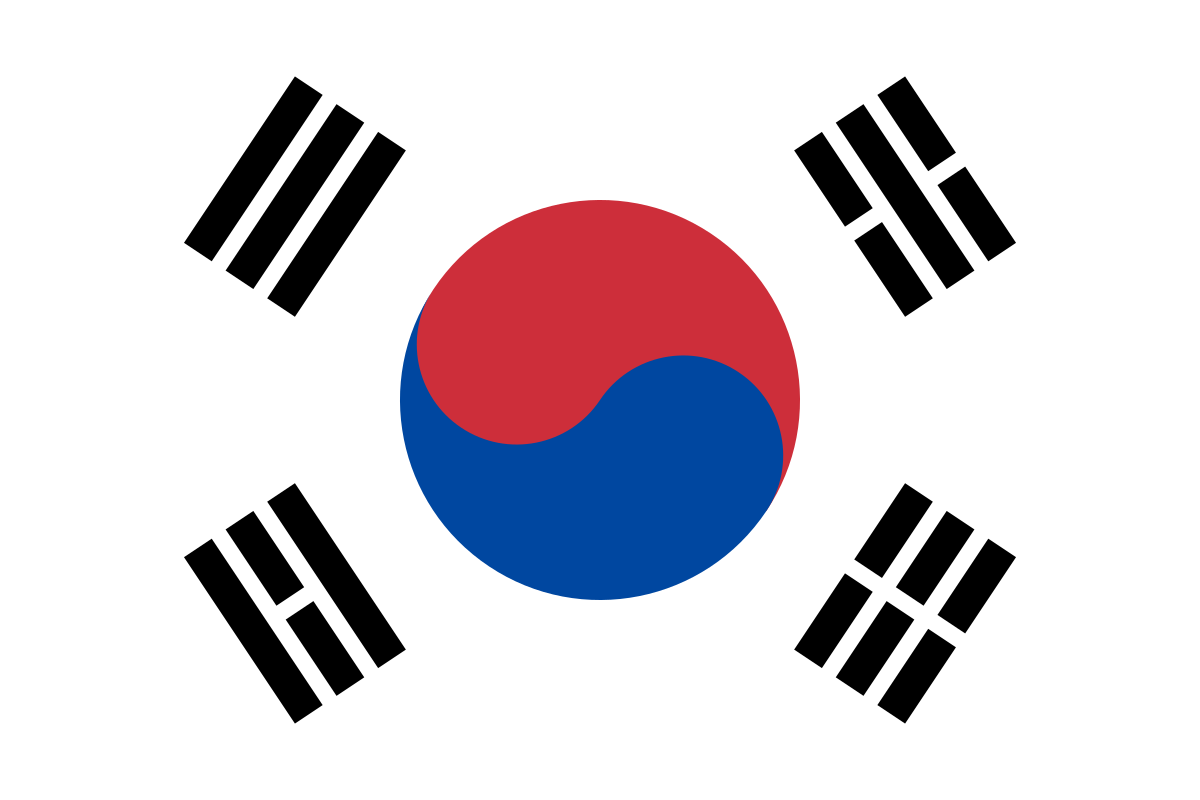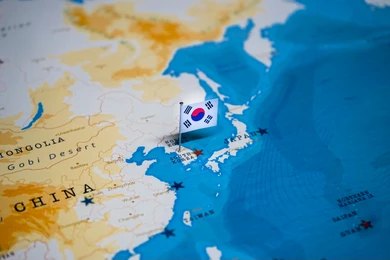From Albanian to Zulu 24/7

KOREAN TRANSLATION SERVICES
At worldLINK, we provide precise, high-quality, and competitively priced Korean translation services for a diverse clientele, including multinational corporations, local businesses, and individuals needing translations for legal, academic, or immigration purposes. Each translation is customized to capture the specific linguistic and cultural nuances of Korean, ensuring accuracy and efficiency. worldLINK bridges language and cultural divides seamlessly, supporting both personal and business goals.
worldLINK KOREAN TRANSLATION SERVICES
KOREAN DOCUMENT TRANSLATION
KOREAN INTERPRETATION
KOREAN SOFTWARE AND WEBSITE LOCALIZATION

KOREAN LANGUAGE IN THE WORLD
With over 80 million speakers, Korean is the official language of South Korea and North Korea, with significant communities in China, the United States, and Japan. Known for its unique alphabet, Hangul, Korean has a complex honorific system and vocabulary rooted in Confucian culture. As South Korea is a global leader in technology, entertainment, and automotive industries, Korean plays an essential role in international business and cultural exchange.
CHALLENGES IN KOREAN TRANSLATION
Korean translation requires expertise in its unique grammar, honorific system, and formal and informal language levels. Korean has context-sensitive vocabulary and specific cultural expressions that need precise adaptation. Additionally, localization for Korean-speaking audiences demands a deep understanding of cultural nuances and industry-specific terminology, particularly in fields like technology, entertainment, and healthcare.
At worldLINK, our skilled Korean translators have a deep understanding of these linguistic and cultural subtleties, ensuring each translation is both technically accurate and culturally resonant for Korean-speaking audiences.


worldLINK KOREAN INTERPRETERS
Our quality assurance process combines advanced technology with a client-centered approach, ensuring cost-effective, accurate, and timely solutions. Our three-phase process—project analysis, production, and post-production—guarantees the highest quality for each Korean translation project. Supported by specialized software and an online project management system, worldLINK provides efficient services tailored to each client’s unique needs. Our team is dedicated to delivering innovative, precise translations of the highest quality.
INDUSTRIES IN SOUTH KOREA
South Korea has one of the world’s most advanced economies, with several key industries driving growth, technology innovation, and international influence. Here are some of the main industries in South Korea:
- Electronics and Technology: South Korea is a global leader in electronics, producing cutting-edge technology products, including semiconductors, smartphones, and displays. Companies like Samsung and LG are key players in the global market, contributing significantly to exports and technological innovation.
- Automotive Industry: South Korea is one of the largest automotive manufacturers globally, known for brands like Hyundai and Kia. The automotive industry is a major contributor to South Korea’s economy, focusing on electric vehicles, autonomous driving technology, and international exports.
- Shipbuilding: South Korea’s shipbuilding industry is one of the most advanced globally, producing large vessels, oil tankers, and container ships. South Korean companies like Hyundai Heavy Industries lead the industry, supporting global trade and energy transportation.
- Entertainment and K-Culture: The Korean Wave, or Hallyu, has propelled South Korean pop culture, including K-pop, film, and TV dramas, to global popularity. Entertainment is a major export industry, with fans worldwide consuming South Korean music, movies, and digital content, promoting South Korea’s cultural influence.
- Renewable Energy and Green Technology: South Korea is investing in renewable energy, including solar, wind, and hydrogen power, to reduce carbon emissions and promote sustainability. The green technology sector supports South Korea’s environmental goals, with a focus on innovation in energy storage and efficiency.
- Pharmaceuticals and Biotechnology: South Korea has a strong pharmaceutical industry, producing generic and specialty drugs, as well as medical devices. The biotechnology sector is growing, focusing on healthcare innovations and research, especially in areas like cancer treatment and biopharmaceuticals.
- Financial Services and Fintech: South Korea’s financial services sector includes banking, insurance, and a dynamic fintech industry. South Korea is a leader in digital banking, mobile payments, and blockchain technology, supporting financial inclusion and digital finance.
- Construction and Infrastructure: South Korea’s construction sector is highly developed, with a focus on infrastructure projects, urban development, and smart cities. South Korean construction companies are also active internationally, building large-scale infrastructure projects around the world.
- Cosmetics and Beauty Products: South Korea’s beauty and skincare industry is known for its innovation in cosmetics, with K-beauty products highly popular worldwide. South Korea is a leader in skincare technology, exporting products globally and setting trends in beauty and wellness.
Textiles and Apparel: The textile and apparel industry in South Korea includes clothing, sportswear, and luxury brands. South Korea is known for its high-quality fabrics, fashion innovation, and sustainability efforts, with products popular in both domestic and international markets.
